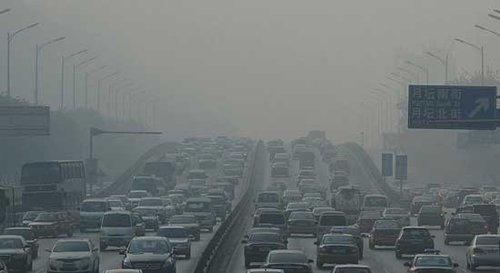Beijing to resume odd-even car ban during heavy pollution
Ecns.cn, July 6, 2015 Adjust font size:
 |
|
Cars run on a heavily smoggy day in Beijing. [File photo] |
Beijing will partially resume a stringent car restriction rule based on odd and even license plates to combat the city's heavy air pollution, Beijing News reported last Friday.
The city government released its latest traffic control policy specially for days with serious air pollution. When air quality reaches the level of orange, the second highest alert level in China, or is closer to the highest red level, the policy will be implemented.
Accordingly, the license plate number of cars will determine whether they are allowed to be driven on the road between 3 a.m. and 12 p.m. on days with an orange alert level. Vehicles used to transport construction waste, tanker trucks, and other heavy trucks will be banned from driving in Beijing at all times on these days.
For days with air quality pending to the red alert level, eighty percent of all cars used by governmental departments and state-owned enterprises will also be off the road.
The policy will not affect six types of vehicles – police cars, fire trucks, ambulances, engineering emergency vehicles, large buses, taxis, and pure electric cars.
Beijing had previously implemented the odd-even regulation during the Beijing Olympic Games in 2008 and later on important occasions, including the APEC meeting in 2014.
The capital, frequently hit by chocking smog, has teamed up with the Tianjin municipality and Hebei province to reduce air pollution.